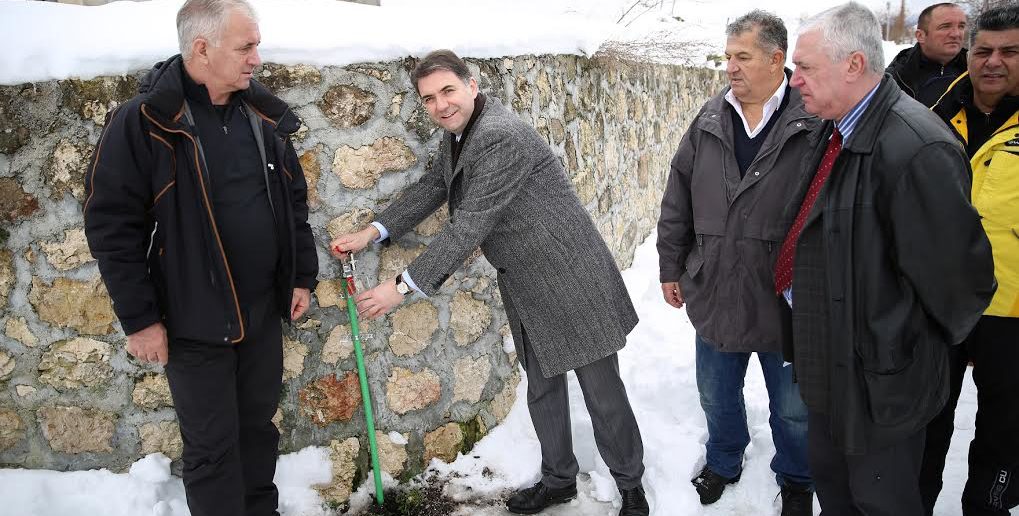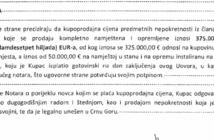In the election year 2016, the Government of Montenegro has been increased the item of the Agro-budget related to the payment of so-called old-age benefits for agricultural households by €600,000, which is an ideal mechanism of “pumping” money in order to bribe voters, and which opens huge space for doubt as to the possible abuses during the election period, shows the analysis of MANS Investigation Center.
According to official data of the Ministry of Agriculture, the total Agro-budget for 2016 is €14.8 million, which means that it has been increase by €1.3 million compared to the previous year, when it amounted to €13.5 million. The largest increase in the current year is related to the payment of old-age benefits, and €3.3 million has been allocated for this purpose, which is around €600,000 thousand more than last year, when under €2.7 million was allocated.
The right to the old-age benefit belongs to the holder of a family agricultural household, or a man of 65 or a woman of 60, who are not receiving cash benefits from another source. The nursing fee is 50 percent of the lowest pension in Montenegro, which currently stands at €100. However, in addition to old-age benefits, the most vulnerable rural households can exercise the right to one-off payment on the basis of a claim supported by local government, social welfare centers or the Ministry of Labor and Social Welfare.
Official data from the Ministry of Agriculture show that in December last year, the total number of nursing benefits was 4,547 persons, while the total sum for the December payment was about €228,000, which means that annual amount is around €2.7 million. When taking into account these figures, it is clear that in the election of 2016, the Ministry also has additional €600,000 for the payment of welfare to the most vulnerable farming households, which is definitely a huge space for possible political influence on voters in the electoral cycle.
€1.2 million for waterworks and rural development
The Ministry of Agriculture has allocated this year half a million.to support the financing of the construction of water supply and irrigation systems in rural areas, with the participation of municipalities and local communities.
The largest sums, €60,000 each, were allocated for the construction of water supply systems in Niksic (Lukovo, Vilusi, Orah and Rubeza) and Podgorica (Kakaricka Gora, Gornji Mosor, Fundina and Kaludjerovo Oko), while Danilovgrad, Herceg Novi, Savnik and the recently formed municipality Petnjica will have €35,000 each.
The construction of water supply system in Cetinje will cost €30,000 thousand, in Andrijevica and Pluzine €25,000, in Bijelo Polje €20,000, Zabljak and Mojkovac €15,000, Bar, Berane, Plav and Pljevlja €10,000, and in Tivat €5,000. Irrigation systems will cost €40,000.
In addition, the Ministry of Agriculture also has €820,000 to finance the so-called rural development projects, which are mainly used for excavating and coating of rural roads.
Moreover, through the Agro-budget for the current year, the Ministry of Agriculture has introduced two new support programs for farmers, allocating €780,000. The first program, amounting to €700,000, should support the improvement of livestock and includes additional resources to farmers for the purchase of new livestock.
The second program, amounting to €80,000, is planned to support the management of manure in order to build a basin or plateau for its storage.
MANS Investigation Center has already announced that in the election year, the Ministry of Agriculture has €3 million as a credit support to farmers on the basis of MIDAS program, with €1 million loan intended for the project of infrastructure enhancement in rural areas. It has been shown that the administration of these programs in pre-election periods is largely used for “pumping” money for political advantage of the ruling party in the field.
Since the Ministry of Agriculture and Rural Development, headed by Petar Ivanovic, has a large amount of cash for payment of premiums to farmers and support for agricultural production, as well as means to build rural infrastructure facilities, it is clear that there is a huge space for electoral bribery, as well as for the doubt that the Agro-budget is significantly used for the electoral purposes of the ruling party.
Numerous abuses before previous elections
MANS Investigation Center in earlier years published a series of data that suggested the obvious suspicion that state funds had been misused during election periods for exercising political influence on voters.
Thus, on the eve of local elections in 2014, the Ministry of Agriculture for the first time designed a special line of support for farmers who were engaged in gardening and production of olives in the amount of €300,000, despite the fact that similar programs to help households already existed within the Agro-budget.
Also, on the eve of presidential elections in April 2013, the Ministry of Agriculture paid farmers around €2.2 million of subsidies for agricultural production, while in the following few months it paid eight times less, or around €270,000.
The local public remembers intense activities of the former Minister of Agriculture Tarzan Milosevic ahead of early parliamentary elections, which were held in October 2012.
In fact, in just two months that preceded the elections, Milosevic visited numerous summer pastures and farmers mainly in the north of the country, learning about their problems, which resulted in a government decision to allocate €1.5 million for the purchase of fodder for farmers, who had been affected by drought that summer. The division of animal feed started just a few days before the elections.
In addition, just before the elections in October 2012, the Ministry of Agriculture approved loans for use of solar energy in the summer pastures for 104 households.
This text is created with the support of the European Union and the U.S. Embassy Podgorica. Network for Affirmation of Non-Governmental Sector – MANS is solely responsible for the contents of this article, and the views taken herein shall not in any case be considered as those of the donors.




